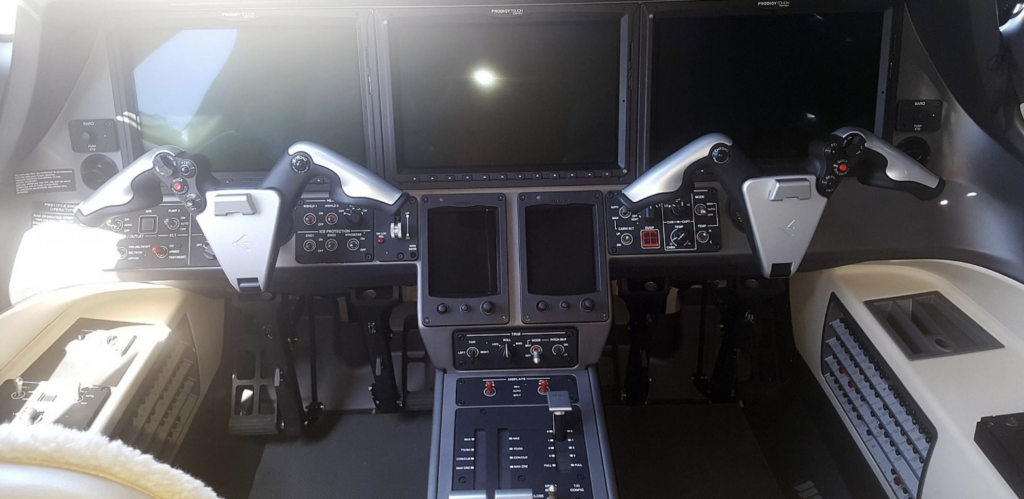
The following AINsight guest column about pilots and skin cancer originally appeared in Aviation International News on May 19, 2023.
‘Tis May, the height of the season for school commencement speeches that offer students everywhere aspirational advice on how to live their lives.
In that regard, some of you (of a certain age) may remember a hypothetical commencement speech from the 1990s that was published in the Chicago Tribune. It later became a spoken word song in 1999 by Baz Luhrmann called “Everybody’s Free (To Wear Sunscreen).” One point of the song was actually great advice—urging young graduates everywhere to remember to protect themselves from the sun whenever possible.
My point to all this? It’s not to tout that I’m attending my son Peter’s graduation (go UVA class of 2023—Wa-Hoo-Wa!). Rather, it’s to share some key advice with my colleagues, especially my friends on the flight deck.
And that is to remind you, as well, to wear sunscreen—especially when flying.
In fact, dermatologist Dr. Joyce Park went viral on TikTok for sharing why pilots have a higher risk of skin cancer than people in other occupations. As well, she suggests passengers wear sunscreen while seated next to a window—or pull down their shade.
Skin Cancer Hits Close to Home
Not too long ago, a pilot friend of mine visited me and said, “You can’t imagine what happened to me.” He then proceeded to show me a new facial scar, the result of rather invasive skin cancer surgery. And I thought to myself, “Holy moly! You’re the second pilot I’ve talked to this week who’s had the same procedure!”
Yes, it’s unfortunately true. Pilots and cabin crew have approximately twice the incidence of melanoma compared with the general population, according to this Journal of the American Medical Association study.
And the thing is, I’m not sure aviation professionals are giving it the importance it deserves. One thing I’m fairly certain of is that their employers probably aren’t doling out sunscreen at safety meetings.
An Occupational Hazard
According to the U.S. Centers for Disease Control, ultraviolet sun exposure is a major risk factor for malignant melanoma and other skin cancers. And we all know that flight crews have more exposure to UV rays than a lot of professionals.
The dermatologist who handled the surgery for one of my pilot friends explained that her office is seeing a lot of senior pilots who’ve been flying high-altitude jets for many years. They live in Atlanta, so there’s a higher concentration of Delta pilots.
My other colleague’s dermatologist advises that crewmembers who fly above 20,000 feet should use a high-quality sunscreen on exposed body parts—face, ears, neck, bald/shaved head, and arms.
“If only I had known to use a top-quality sunscreen whenever flying at high altitudes,” my colleague told me regretfully.
Beating the Skin Cancer Odds
Catching skin irregularities early makes most skin cancers 99 percent treatable. And an annual skin screening is usually covered by health insurance—in case anyone needs another reason to get a checkup.
It’s serious business: catching skin cancer early can be the difference between life and death.
So, a bit of advice: to reduce your risk of skin cancer, protect your skin from the sun and get annual checkups at the dermatologist. You can take the following general steps to help avoid developing skin cancers:
- Use sunscreen at work, since some UV radiation comes through the windows on some aircraft, especially those with glass windows.
- Get screened regularly by a dermatologist to catch unusual moles, new spots, or non-healing lesions as soon as they develop.
- Learn more about sun safety.
So, as you can see, as we swing into the summer, there’s more than just graduations to think about. Devote some time to helping ensure the personal safety of your team.
We talk a lot about health and safety in aviation. And, inconsequential as it might seem, slathering on an adequate layer of sunscreen can make all the difference in the world.
The opinions expressed in this column are those of the author and not necessarily endorsed by AIN Media Group.
